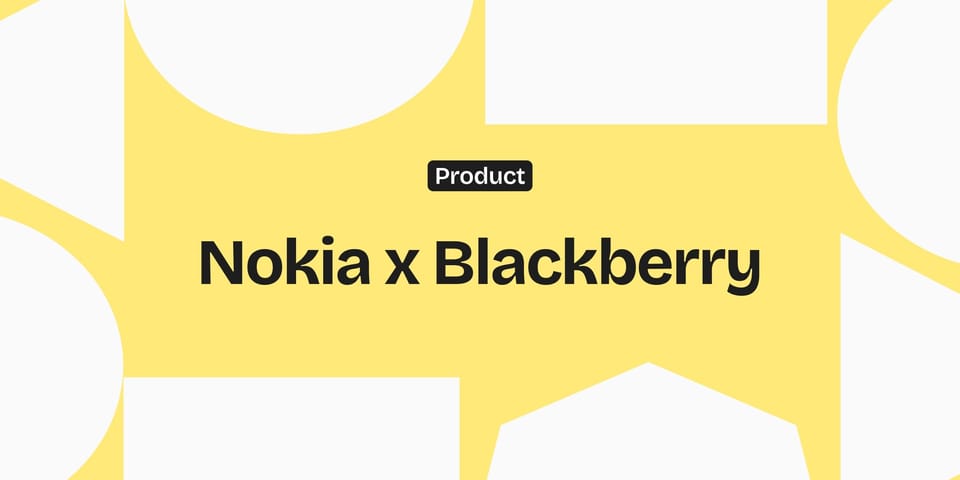Why Zudio Might Be the Best Thing to Happen to Zara in India
Zudio is quietly building Zara's next generation of customers in India - one ₹299 t-shirt at a time. It's not just a budget brand. It's a smart funnel. Tata's playing both ends of the income spectrum, and winning.

Zudio has become one of the most interesting brands I think about lately. Not because I shop there. In fact, I don't. But because of what it's quietly doing for Zara in India.
Let's be real: most people look at Zudio and think "budget fashion chain." I see something else. I see a funnel that feeds Zara's premium retail empire, without most consumers even realising it.
The Indian fashion ladder is real
I've spent the last decade building for Bharat. Scaled to millions of users. Watched spending patterns change firsthand.
And here's one of my biggest learnings: Indians don't jump income brackets, they graduate.
Fashion is a great way to observe this.
- Someone earning ₹4-8 LPA doesn't think in brands. They think in value. They'll buy that ₹299 T-shirt that looks trendy, wear it proudly, and feel like they've levelled up.
- Once they hit ₹10+ LPA, suddenly Zara doesn't feel so intimidating. That ₹3,000 shirt? It becomes a splurge, not a shock.
I've seen this evolution in friends, teammates, even Uber drivers who ask about my sneakers.
Zudio meets people right before they get aspirational.
Zudio gets you comfortable with shopping like the rich
Zudio is the warm-up lap before you enter Zara's showroom.
It's your first AC retail experience. Your first experience with shopping seasonal drops. Your first time returning clothes.
Zudio normalises modern fashion behaviour.
So by the time you enter Zara, you're not overwhelmed. You already know the drill.
In a way, Zudio trains India to become Zara customers.
Which is wild when you think about it.
Why I think Zudio is basically Zara's MVP engine
There's a startup playbook here. Build MVPs. Validate in smaller markets. Learn fast. Scale smart.
Tata is doing exactly that. Just offline.
Zudio stores are popping up everywhere: 400+ across 150+ cities. And this isn't just about revenue.
It's about data. Taste. Local demand.
If Zudio works in a city, Zara takes notice.
If Zudio fails somewhere, Zara avoids that cost entirely.
That's what makes this beautiful: Zudio de-risks Zara's expansion.
It's like running pilots on cheap hardware to build a premium app later. Tata is basically doing city-level A/B testing.
Income bands = market segments = brand roles
I've been obsessed with this idea lately: Indian brands shouldn't think of India as one market.
They should think of it as a staircase of incomes.
Every ₹2-3L jump in income creates a new lifestyle:
- ₹4-6LPA: value-conscious, influenced by social media, wants trendy stuff but can't pay premium
- ₹7-10LPA: starting to experiment, looking for quality, sometimes brand curious
- ₹10-15LPA: brand aware, aspirational, wants to be seen with Zara bags
- ₹20LPA+: hunting for international names, maybe ordering Armani Exchange or Superdry.
Zudio slots in beautifully at that ₹4-8LPA range.
Zara starts becoming appealing around ₹10LPA.
This isn't a coincidence. Tata is literally designing for the Indian income ladder.
And this is where I think a lot of other conglomerates miss the point. They build one brand and try to stretch it across everyone.
But aspiration doesn't stretch. You have to graduate people gently.
Same mall, different stories
Zudio and Zara can exist in the same mall and attract completely different people.
Zudio is loud, massy, fun. You walk in and see "₹299" in huge fonts. Teens hang out there. College students on tight budgets. First-jobbers who got paid last week.
Zara is premium, elegant, quiet. The store layout is minimal. No discounts screaming in your face.
You go there when you're shopping for a wedding, a date, a festival.
They never clash. Because they're not trying to serve the same moment in a consumer's life.
Zudio is your first love. Zara is your upgrade.
Zudio is Zara's fast-learning sibling
Fashion is one of the hardest businesses. Styles change fast. What works in one city bombs in another.
That's where Zudio is super valuable.
With its high frequency, low-cost model, Zudio can try things Zara simply can't afford to:
- Experimental cuts
- Local textile variations
- Loud prints
- New fits
Some of these flop. No problem. Low price = low risk.
Some of these explode. That's when Zara steps in.
Zudio gives Zara market intelligence at scale.
It's kind of like how YouTube Shorts lets creators test what might later work on Netflix. Same content DNA, different formats.
The real genius: Zudio is what Zara never could be
Zara has a global brand. Premium positioning. It can't discount. It can't go mass. That would ruin the perception.
But Tata owns both.
So they can afford to let Zudio go crazy with pricing and reach - because it takes nothing away from Zara's brand.
In fact, it helps it.
Zudio builds the habit of shopping fashion-forward. Zara cashes in when that habit meets ambition.
One teaches you how to walk into a store.
The other teaches you how to walk out with style.
Final thoughts: This is funnel thinking at its best
What makes this so impressive is the sequencing.
This isn't about building one store for everyone. It's about building for every stage of a shopper's life.
And Tata is doing it better than most.
Zudio trains the masses. Zara rewards the graduates.
One does the onboarding. The other captures the upside.
It's quiet. It's efficient. It's brilliant.
Zara, in India, is standing on Zudio's shoulders.
And Zudio doesn't even mind.




